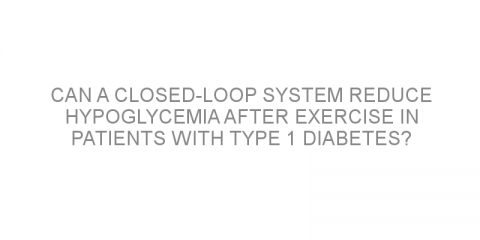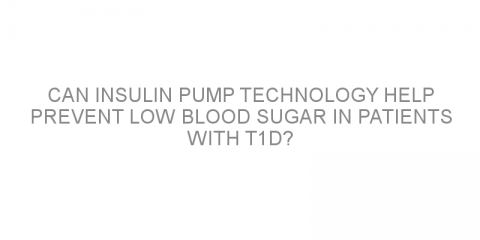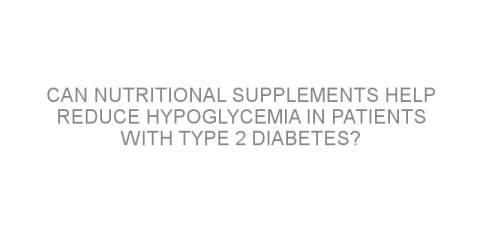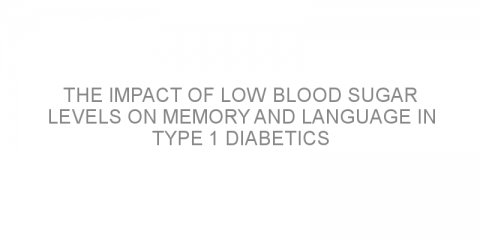In a nutshell This study looked at how the Diabeloop system managed exercise for patients with type 1 diabetes (T1D). It found that people using this system did not have more hypoglycemia (dangerously low blood sugar) on days with exercise. Some background Physical exercise is a cornerstone of good health. Its many benefits include improved heart...
Read MoreEpisodes of hypoglycemia-Yes, once or twice Posts on Medivizor
Can insulin glargine 300 reduce hypoglycemia risk?
In a nutshell This study compared patients with type 2 diabetes (T2D) switching to either insulin glargine 300 (Toujeo) or insulin glargine 100 (Lantus). It found that both types of insulin glargine improved blood glucose control, and insulin glargine 300 had a lower risk of hypoglycemia (dangerously low blood glucose levels) outside of a clinical...
Read MoreDoes kidney function influence hypoglycemia risk?
In a nutshell This study looked at the relationship between kidney function and hypoglycemia in patients with diabetes. It found that patients with low kidney function had hypoglycemia more frequently, and the episodes were more severe. Some background Diabetes is a disorder leading to high levels of glucose (sugar) in the blood. High levels of...
Read MoreIs nasal glucagon a good alternative to injectable glucagon for patients with diabetes that develop hypoglycemia?
In a nutshell This study compared two ways to administer glucagon to stop hypoglycemia (dangerously low blood glucose) in patients with diabetes. The results showed that nasal glucagon (Baqsimi) was as effective as injectable glucagon, with similar side effects. Some background Patients with type 1 (T1D) and type 2 diabetes (T2D) often take...
Read MoreCan insulin pump technology help prevent low blood sugar in patients with T1D?
In a nutshell This study evaluated whether the ‘suspend-before-low’ feature of automatic insulin pumps prevented hypoglycemia (HG) in patients with Type 1 diabetes (T1D). The authors concluded that this feature successfully reduced the rate of HG and was not associated with increased side effects. Some background The goal of...
Read MoreCan nutritional supplements help reduce hypoglycemia in patients with Type 2 diabetes?
In a nutshell This study examined if nutritional supplements can reduce the rate of hypoglycemia in patients with Type 2 diabetes (T2D). This study concluded that these supplements helped reduce hypoglycemia and lowered mortality risk for these patients. Some background Treatment for T2D, such as insulin, can cause blood sugar levels to...
Read MoreThe impact of low blood sugar levels on memory and language in type 1 diabetics
In a nutshell This study examined the effects of low blood sugar levels on the working memory and language in type 1 diabetics. Some background Low blood glucose (sugar) levels can result in impaired brain function. During periods of low blood glucose, it is believed that the brain areas controlling working memory and language are affected. The...
Read MoreThe effect of overnight decreases in blood sugar on diabetic patient well-being
In a nutshell This study evaluated the role non-severe nocturnal hypoglycemic events or NSNHEs (abnormally low blood sugar levels during the night) plays in patients’ well-being and management of diabetes mellitus. Some background Patients with diabetes mellitus (DM) must carefully manage the level of glucose, or sugar, in their blood. Even...
Read More










